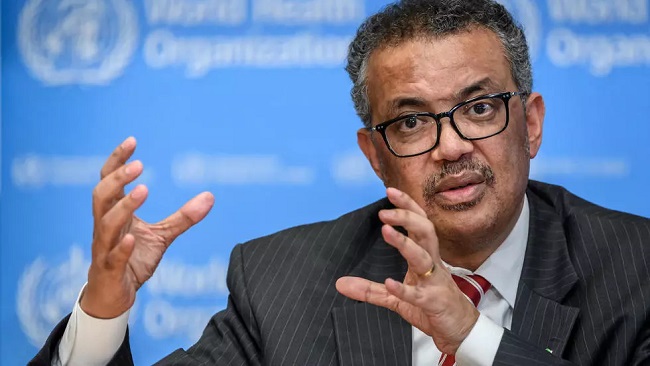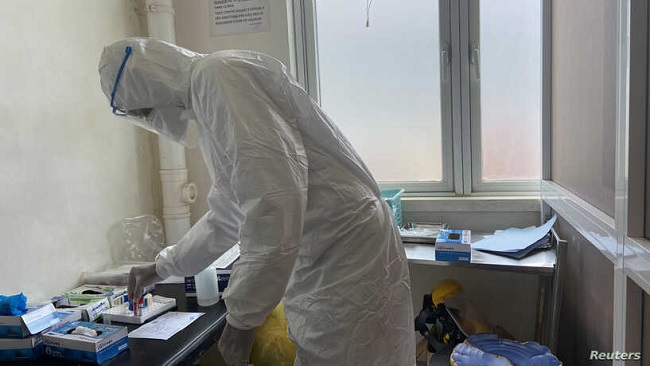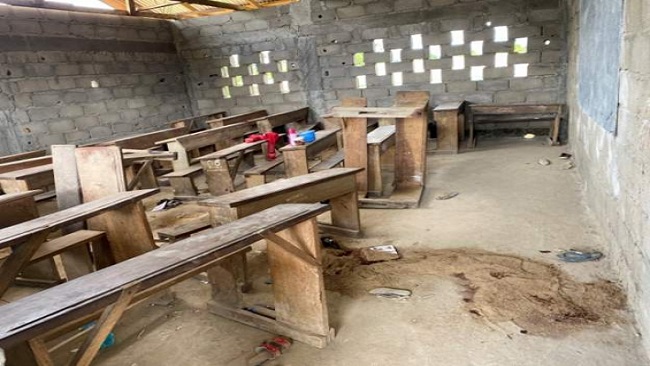29, December 2021
WHO warns Omicron risk remains ‘very high’ 0
The risk posed by the Omicron variant is still “very high,” the World Health Organization said Wednesday, after Covid-19 case numbers shot up by 11 percent globally last week.
Omicron is behind rapid virus spikes in several countries, including those where it has already overtaken the previously-dominant Delta variant, the WHO said in its Covid-19 weekly epidemiological update.
“The overall risk related to the new variant of concern Omicron remains very high,” the UN health agency said.
“Consistent evidence shows that the Omicron variant has a growth advantage over the Delta variant with a doubling time of two to three days and rapid increases in the incidence of cases is seen in a number of countries,” including Britain and the United States, where it has become the dominant variant.
“The rapid growth rate is likely to be a combination of both immune evasion and intrinsic increased transmissibility of the Omicron variant.”
However, the WHO highlighted the 29 percent decrease in the incidence of cases observed in South Africa, the country which first reported the variant to the WHO on November 24.
It said early data from Britain, South Africa and Denmark — which currently has the world’s highest rate of infection per person — suggested there was a reduced risk of hospitalization for Omicron compared to Delta.
However, further data was needed to understand Omicron’s severity in terms of clinical markers, including the use of oxygen, mechanical ventilation and death.
More data was also required on how the severity might be being impacted by previous Covid infection, or vaccination.
“It is also expected that corticosteroids and interleukin 6 receptor blockers will remain effective in the management of patients with severe disease,” the WHO said. “However, preliminary data suggest that monoclonal antibodies may be less able to neutralize the Omicron variant.”
Rise in cases
The WHO said that in the week ending Sunday, following a gradual increase since October, the global number of new cases rose by 11 percent compared to the previous week, while the number of new deaths dipped by four percent.
“This corresponds to just under five million new cases and over 44,000 new deaths,” the Geneva-based organization said.
The highest numbers of new cases were reported from the United States, Britain, France and Italy.
Source: AFP

























31, December 2021
Legendary Indomitable Lions musician Willy Mendo reportedly held in Kondengui 0
Renowned French Cameroun artist Willy Mendo who travelled to Yaounde from Paris recently to attend the finals of the 33rd edition of the Africa Cup of Nations beginning January 9 is now detained at the Maximum Security prison in Kondengui.
Willy Mendo was arrested on Thursday upon his arrival following an arrest warrant issued by a magistrate at the Mfoundi High Court in Yaoundé.
The judge Gertrude Sanama Ekassi stated in the warrant that the charges against the 64-year old artist were criminal in nature.
Cameroon Concord News understands the artist braved the pandemic and flew to Cameroon to release a new single entitled “Anthem to the Indomitable Lions” similar to what he did in 1984 after the Indomitable Lions success in Abidjan.
Our Yaoundé city reporter hinted that the football singer of the 80s and 90s is accused of misappropriation of public funds and he is presently in provisional detention.
Obam William Mendo, to use his real name recently left Paris, France, where he has been living for a long time, to attend the 2021 African Cup of Nations that his native country is organizing.
His mythical song entitled “Indomitable Lions” released the day after the coronation of the Indomitable Lions in Abidjan at the end of the Africa Cup of Nations soccer organized in 1984 in Côte d’Ivoire is always broadcast on state radio and television.
By Besong Eunice Nchong